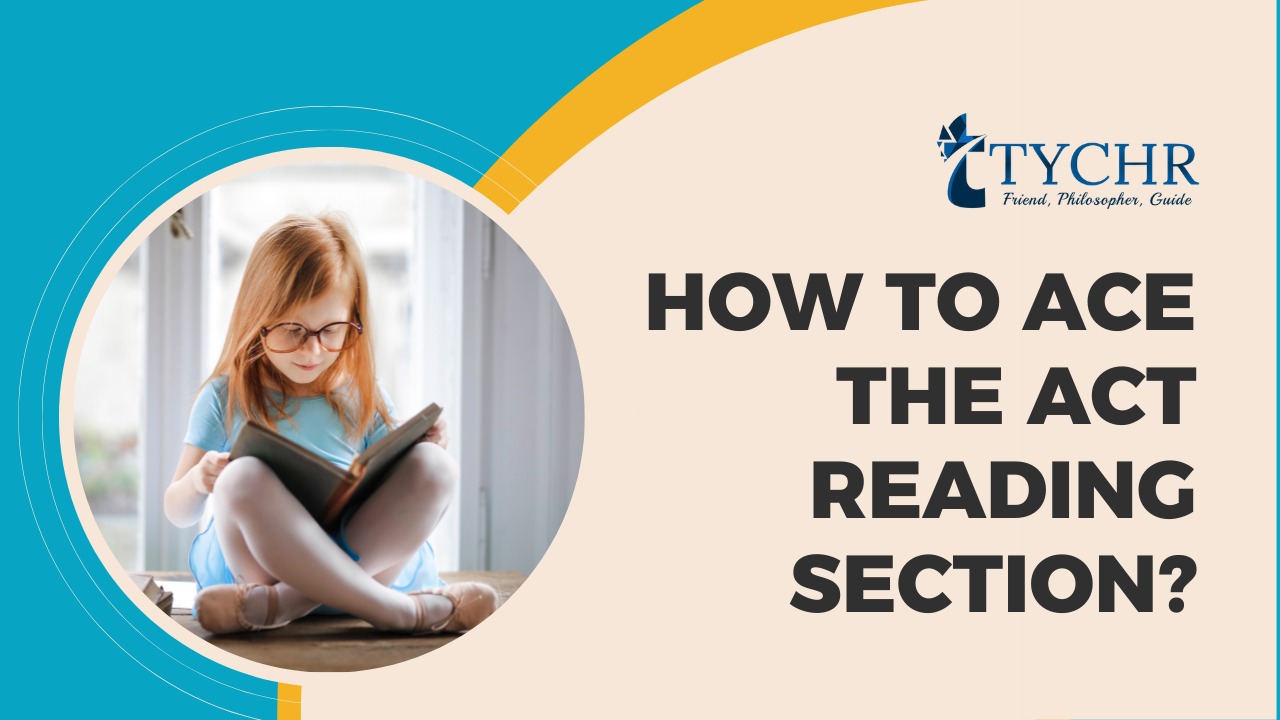Table of Contents
The ACT (American College Testing) is a standardized test widely used for college admissions in the United States. It consists of four sections: English, Mathematics, Reading, and Science. Each section is scored on a scale of 1 to 36, and the scores are averaged to give the overall composite score. In this guide, we will focus specifically on the ACT Reading section and strategies to improve your Xyz score.
Understanding the ACT Reading Section
The ACT Reading section evaluates your reading comprehension skills through a series of passages followed by multiple-choice questions. There are four passages, each approximately 750 words long, and you have 35 minutes to complete the section. The ACT score ranges from 1 to 36 and represents your performance on this section.
The ACT exam features a reading section that consists of four passages, each accompanied by ten questions. These passages fall into four different categories, including:
- Prose Fiction: These passages contain excerpts from novels or short stories, often focusing on modern themes and family dynamics.
- Social Science: This category covers a wide range of subjects such as anthropology, psychology, history, economics, and political science.
- Humanities: Passages in the humanities explore topics like architecture, art, language, music, philosophy, and literature, including personal essays and reflections.
- Natural Science: These passages encompass various scientific fields such as astronomy, biology, chemistry, geology, and physics.
READ ALSO: How to Ace the ACT Math Section?
Skills Required for ACT Reading
To excel in the ACT Reading section, you need to develop and apply specific skills. Here are the essential skills and tips for the reading section:
- Recognize key concepts: Understand the main ideas and topics by drawing conclusions, making inferences, and identifying chronological or cause-effect relationships.
- Understand the passage structure: Interpret the meaning of words, phrases, and sentence constructions. Consider the author’s purpose and perspective, as well as the viewpoints of characters or other entities mentioned.
- Connect concepts and ideas: Evaluate the author’s claims, distinguish between facts and opinions, and use evidence to make connections between different parts of the passage.
ACT Reading Question Types
The ACT Reading section includes different types of questions designed to assess your comprehension, critical thinking, and inference skills. Each passage type requires a specific approach. Here are some question types and tips for each passage type:
- Main Idea/Overall Picture: Identify the central topic or theme of the passage. Look for recurring ideas or arguments throughout the text.
- Specifics/Detailed Picture: Pay attention to specific lines or paragraphs referenced in the questions. Go back to the passage and analyse the context to find the correct answers.
- Contextual Vocabulary: Focus on words or phrases that have a specific meaning or usage within the passage. Consider the author’s intent and how the word contributes to the overall message.
- Performance and Growth: Analyse the impact of a phrase, sentence, or paragraph within the passage. These questions often involve smaller sections of the text, so look for shifts in tone, perspective, or development.
- Assumption of Ideas: Look for assumptions or implications made in a sentence, paragraph, or the entire passage. Consider the underlying messages or perspectives presented by the author.
- Comparative Questions: Compare and contrast different viewpoints or arguments presented in the passage. Pay attention to similarities and differences to choose the most accurate response.
- Cause and Effect Questions: Analyse cause-and-effect relationships presented in the passage. Identify the reasons behind certain events or the consequences of specific actions.
Tips for Answering Each Passage Type
- Prose Fiction: Focus on character development, relationships, and themes. Pay attention to the emotions and motivations of the characters.
- Social Science: Look for key arguments, evidence, and theories presented. Consider the implications and real-life applications of the social science concepts discussed.
- Humanities: Analyze the author’s perspective, their interpretation of artistic or cultural elements, and the influence of these elements on society.
- Natural Science: Understand scientific concepts, research methods, and experimental data. Pay attention to the cause-and-effect relationships within the scientific context.
Remember to practice actively reading and analyzing passages from different subjects to improve your overall performance in the ACT Reading section.
How to Prepare for ACT Reading
To succeed in the ACT Reading section, thorough preparation is essential. Here are some tips to help you prepare effectively:
- Utilise official ACT resources: Make use of the official ACT booklet provided on the ACT website. Familiarise yourself with the exam format and expectations.
- Enhance reading comprehension skills: Read a variety of passages regularly to improve your reading comprehension abilities. Practice summarising main ideas and identifying supporting details.
- Stay informed about current affairs: Research social, political, and general issues to broaden your knowledge and gain a global perspective. This will help you comprehend diverse topics in the reading section.
- Practice with sample tests: Utilise online resources and official ACT practice materials to solve sample questions. Familiarise yourself with the question types and improve your time management skills.
How to improve your score
- Analysing Reading Passages to Improve Your Score
To improve your ACT Reading score, it’s crucial to analyse the passages effectively. Start by skimming the passage to get a general idea of the content, structure, and main arguments. Then, read the passage carefully, paying attention to details and making mental notes of key points. Understanding the author’s main idea, tone, and purpose will help you answer questions more accurately.
- Mastering Active Reading Techniques
Active reading techniques involve engaging with the text actively to enhance comprehension. Some effective techniques include highlighting or underlining important information, jotting down notes or summaries, and asking yourself questions while reading. By actively interacting with the text, you’ll improve your understanding and retention of the material.
- Enhancing Vocabulary and Literal Comprehension Skills
Expanding your vocabulary and improving your literal comprehension skills can significantly impact your ACT Reading score. Make a habit of reading a wide range of texts, including newspapers, magazines, and novels. When you encounter unfamiliar words, look up their definitions and learn how to use them in context. Additionally, practice summarizing passages to strengthen your ability to extract key information.
- Time Management Strategies for the ACT Reading Section
Time management is crucial in the ACT Reading section. To effectively manage your time, allocate approximately 8 minutes per passage. Avoid spending too much time on any single question. If you’re struggling with a question, make an educated guess and move on. Prioritize answering the easier questions first, and return to the more challenging ones if time permits.
- Practice, Practice, Practice
Practice is key to improving your ACT Reading score. Familiarize yourself with the types of questions asked and the format of the section by utilizing official ACT practice tests. Simulate test day conditions by timing yourself and practicing under exam-like circumstances. This will help you build confidence and develop strategies to tackle different question types effectively.
- The Importance of Reviewing Your Mistakes
After completing practice tests or sections, it’s essential to review your mistakes thoroughly. Identify the patterns of errors you tend to make and understand the reasoning behind the correct answers. This analysis will allow you to address your weaknesses and refine your test-taking strategies.
- Resources to Help You Achieve a Perfect Score
Various resources can aid your preparation for the ACT Reading section. Official ACT prep materials, including the ACT Official Guide and the ACT Online Prep platform, provide authentic practice materials and helpful insights. Additionally, consider using third-party study guides, online forums, and tutoring services to supplement your preparation and gain additional perspectives.

Here is an example passage
Passage:
In the late 19th century, the Industrial Revolution brought about significant changes in the United States. As factories emerged and urban areas expanded, a new social and economic landscape emerged. This period of rapid industrialization led to both advancements and challenges for the nation.
One notable impact of the Industrial Revolution was the rise of the middle class. With the growth of factories and industries, more job opportunities became available, attracting individuals from rural areas to urban centres. This influx of workers resulted in the growth of a middle class that enjoyed greater economic stability and social mobility than the working class.
However, the benefits of industrialization were not equally distributed. While the middle class thrived, the working class faced harsh conditions. Factory workers toiled long hours in dangerous environments, often earning meagre wages. Child labour was rampant, and workers had limited rights and protections. This led to widespread calls for labour reforms and the formation of labour unions to advocate for workers’ rights.
Furthermore, the Industrial Revolution also had environmental consequences. Rapid industrial growth resulted in increased pollution and the degradation of natural resources. Urban areas became heavily polluted, and the health of residents deteriorated. The need for environmental regulations became apparent, leading to the emergence of early environmental movements and the establishment of conservation initiatives.
Overall, the Industrial Revolution transformed American society, fueling economic growth and urbanisation. However, it also exposed the social and environmental costs of unchecked industrial development.
Example Questions:
- What was one significant impact of the Industrial Revolution in the United States?
- A) Decline of the middle class
- B) Increased agricultural production
- C) Growth of urban areas
- D) Decreased job opportunities
Answer: C) Growth of urban areas
Explanation: The passage states that as factories emerged and urban areas expanded, a new social and economic landscape emerged. This indicates that one significant impact of the Industrial Revolution was the growth of urban areas.
- Which social class benefited the most from the Industrial Revolution?
- A) Upper class
- B) Middle class
- C) Working class
- D) Peasants
Answer: B) Middle class
Explanation: The passage mentions that the growth of factories and industries led to the rise of the middle class, which enjoyed greater economic stability and social mobility compared to the working class.
- What was a major challenge faced by the working class during the Industrial Revolution?
- A) Lack of job opportunities
- B) Inadequate wages
- C) Limited access to education
- D) Excessive government regulation
Answer: B) Inadequate wages
Explanation: The passage states that factory workers earned meagre wages, indicating that inadequate wages were a major challenge faced by the working class during the Industrial Revolution.
Frequently Asked Questions (FAQs)
1. How long is the ACT Reading section?
The ACT Reading section consists of 40 questions, with 10 questions per passage. The time limit for this section is 35 minutes, giving you approximately 52 seconds to answer each question.
2. How can I improve my skills for the ACT Reading exam?
Enhance your reading comprehension skills by practising reading passages regularly. Focus on inferring main concepts, paying attention to details, and understanding cause-and-effect relationships. Solve sample tests to become faster and more efficient.
3. What are the question types in ACT Reading?
ACT Reading questions cover various topics such as social studies, natural sciences, prose fiction, and humanities. The question types include identifying main ideas, analysing specifics, understanding contextual vocabulary, evaluating performance and growth, assumptions of ideas, comparative analysis, and cause and effect relationships.
Improving your ACT Reading score requires a combination of effective strategies, active reading techniques, vocabulary enhancement, time management, and dedicated practice. By analyzing passages effectively, engaging actively with the text, and honing your comprehension skills, you can enhance your Xyz score. Remember to practice under timed conditions, review your mistakes, and utilize available resources to optimize your preparation. With perseverance and a well-rounded approach, you can achieve success in the ACT Reading section. Good luck!







